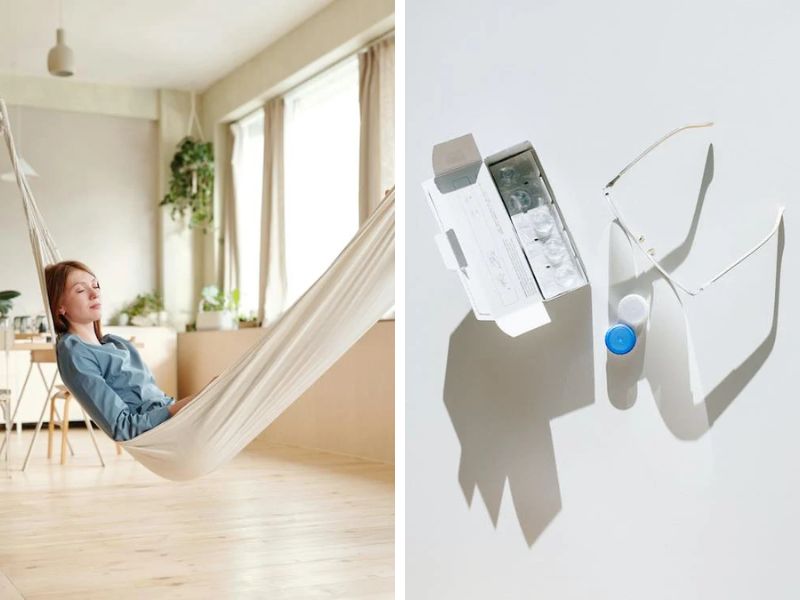Sleeping with contact lenses can have a detrimental effect on your eye health. Even though it may seem like a harmless habit, it can cause various eye issues, from minor irritability to severe infections. This article will discuss the effects of sleeping with contact lenses on eye health. The primary problem with sleeping with contact lenses is that they reduce the amount of oxygen that reaches your eyes. When you close your eyes, your eyelids limit the amount of oxygen that can pass through to your cornea. It is not usually a problem during the day when you blink regularly. Still, at night, when your eyes are closed for an extended period, the lack of oxygen can lead to various complications.

Image Credit: Pexels/Nataliya Vaitkevich & Pexels/Mikael Blomkvist
The swelling of the cornea brought on by an accumulation of fluids is known as corneal edema, and it is a frequent problem that can result from sleeping with contact lenses on. It can cause redness, discomfort, and blurred vision. It can result in more severe issues, including corneal ulcers and scarring if left untreated.
Another potential problem is bacterial infections, which can occur when bacteria accumulate on the surface of the contact lenses. When you sleep with your lenses, the lenses can trap bacteria against your eyes, leading to infections such as conjunctivitis, keratitis, and corneal ulcers. These infections can be painful and may require medical treatment.

Image Credit: Shutterstock/Suwit Rattiwan
Sleeping with contact lenses can also increase the risk of developing dry eyes. When you sleep with your lenses, they can absorb the natural moisture from your eyes, leading to dryness and discomfort. Over time, this can cause chronic dry eyes, which can be challenging to treat.
Sleeping with contact lenses can negatively affect your eyes’ health. It may result in scarring and more severe issues, such as corneal ulcers, if unattended. Following proper hygiene practices and removing your contact lenses before sleeping is essential to avoid complications. If you must sleep with your lenses, ensure they are approved for overnight use and follow the recommended cleaning and replacement schedule.